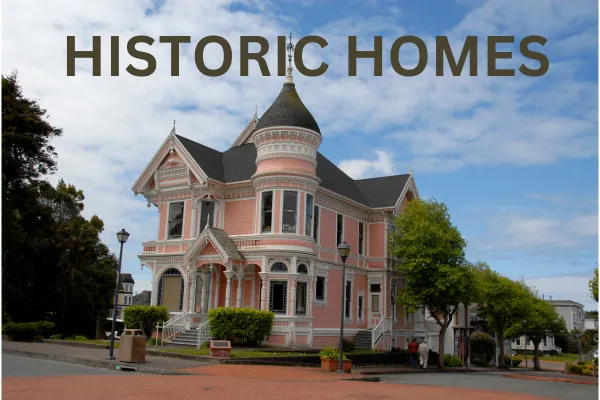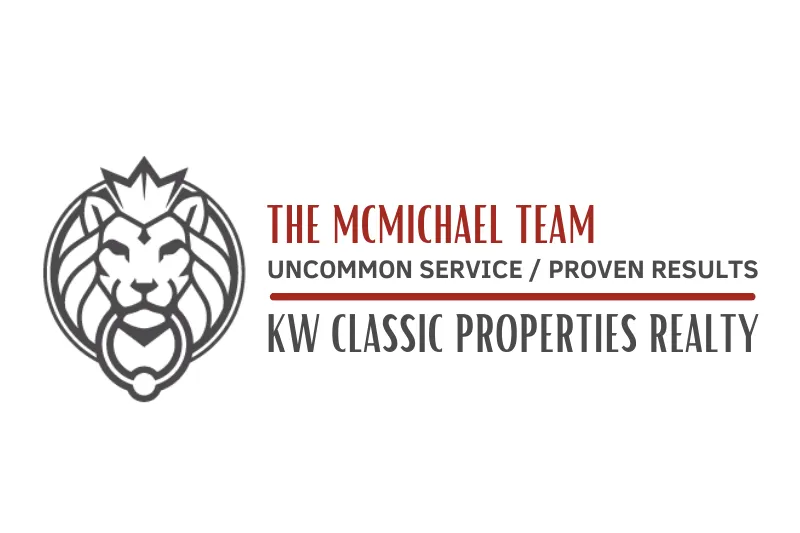Sell Your Columbus,Ohio Home Quickly With The McMichael-Liston Team
Join tons of highly satisfied homeowners who have worked with The McMicheal-Liston Team to sell their home quickly and for top dollar.
or call us at (614) 766-7766 today!
Are you ready to sell your house? Fill out this simple form or call (614) 769-7766.
Know Why You are Selling
If you know exactly why you are selling then it is easier for you to follow the right plan of action for getting what you want.
If you are a seller who needs to close a sale as quickly as possible, then you should know that getting the highest price possible is not one of your priorities. It does not mean that you won’t or cannot get the highest price, but it means that the price is not the deciding factor.
A buyer who can give you a quick closing time will appeal much more to you than a buyer who can offer you more money but the negotiation and closing time drag on.
It’s always good to know how low you will go, in terms of selling price. This will help to eliminate some of the offers that you find simply offensive or ridiculous. Even though you should consider all offers seriously and take into consideration the terms of each offer, sometimes, if you know the bottom line and are strict about it, you can save yourself time.
Once you know what your limits and reasons are, discuss them with your agent so that they can help you set your goals realistically. If you decide to list your home on your own, make sure you do research on the current market, and you get the proper advice you need in terms of legal issues, etc. The key is to be realistic and to know what your goals are so they can be met.
Plan of Action
- Analyze why you are selling – If you understand your motives, you will be able to better negotiate and to get what it is that you want, whether it be a quick sale, high price, or somewhere in the middle.
- Prepare your home for the buyer – Maximize the strengths of your property and fix up its weaknesses. You want the buyer to walk away from your home with a lasting good impression.
- Find a good real estate agent that understands your needs – Make sure that your agent is loyal to you, and can negotiate to help you achieve your goals. In addition, they should be assertive and honest with both you and the buyer.
- Be prepared for negotiation – Learn and understand your buyer’s situation; what are their motives? Can you demand a big deposit from them? Try to lock in the buyer so that the deal goes through.
- Negotiate for the best price and the best terms – Learn how to counter offer to get maximum value from every offer.
- Make sure the contract is accurate and complete – Be honest with your disclosures; you do not want to lose the deal because you were lying or diminishing your home’s defects. Insist the buyers get a professional inspection. This will protect both you and the buyer.
Finding the Right Agent
Not all agents work the same way. The most important attribute of an agent is that he/she is well connected to the real estate industry. He/she should know the market and provide information on past sales, current listings, his or her marketing plan, and at least 4 solid references. In addition, you also want to look for an agent that is honest, assertive, and one that best understands your needs.
Try to go with a local agent. They can better serve your needs because they should be more familiar with the local market conditions, local prices, and what’s hot or not in your community.
Considering Offers
When reading an offer, keep in mind that you are out to get the best price AND the best terms for you. If you focus solely on the price, you may overlook terms that could be favorable to you as a seller.
Some terms that may work in your favor:
higher-than-market-interest in a second mortgage for your home
the buyer will pay for most or all of the closing costs
the buyer will take care of any repairs
quick close – the buyer is pre-approved, ready to close in a timeframe that best suits you
all-cash deal
When reading through offers, remember to look at the whole package. Take the time that you need to assess what is being offered and if it meets your needs.
Setting the Price
The price is the first thing buyers notice about your property. If you set your price too high, then the chance of alienating buyers is higher. You want your house to be taken seriously, and the asking price reflects how serious you are about selling your home.
Several factors will contribute to your final decision. First, you should compare your house to others that are in the market. If you use an agent, he/she will provide you with a CMA (Comparative Market Analysis). The CMA will reflect the following:
houses in your price range and area that were sold within the last half-year
asking and selling prices of houses
current inventory of houses on the market
features of each house on the market
For Sale By Owner – A Good Idea?
FSBO (pronounced fizz-bo), or For Sale By Owner, is a way of selling your home without the use of a professional real estate agent or broker. The idea behind FSBO is that by selling your home yourself, you save the approximate 6% that would be the agents’ commission.
6% may not sound like a lot, but it can add up, especially on more expensive homes. But before you run off and decide to sell your home FSBO, you must remember that to get savings like that, there must be a cost. So what’s the catch? Selling FSBO is hard. A lot harder.
Only about 10% of sellers that decide to do FSBO are successful at it. And not all of them end up saving themselves money. FSBO sellers often end up accepting a lower price for their home than they would with an agent.
There are of course other issues as well. Can you afford to make selling your home your full-time job? Because for a lot of FSBO sellers, that’s exactly what it is. Do you have the time and capital to spend on the marketing, advertising, inspections, paperwork, phone calls, showings, and problems that come up when any home is sold?
Selling with a professional agent also has other advantages. An agent can get your home listed on the MLS (Multiple Listing Service) and other popular websites where not only homebuyers but also other agents can easily find it. Professional real estate agents also have an extensive network that allows them to more easily find a buyer.
So before you decide to sell your home yourself, thoughtfully consider just how much time and effort you can spare for selling your home, as well as how important it is that your home sell sooner rather than later.
Recent Posts

The Impact of Historic Preservation on Property Value
“Is it not cruel to let our city die by degrees, stripped of all her proud monuments, until there will be nothing left of all her history and beauty to inspire our children. If they are not inspired by the past of our city, where will they find the strength to fight for her future?” - Jacqueline Kennedy Onassis
Introduction:
Historical preservation extends beyond mere conservation efforts; it focuses on safeguarding our cultural heritage and architectural legacy. This article explores how designated historic districts and the preservation of their character influence property values, making them more than just fascinating relics.

A historically significant district, like German Village in Columbus, Ohio, can influence home prices, the local economy, and the overall appeal of these unique communities.
Understanding Historical Preservation
To understand the impact, it is important to grasp what historical preservation entails. It involves protecting and maintaining structures, objects, landscapes and artifacts that hold significant value to human history. Historic districts are areas recognized for their historical, cultural, or architectural importance.
The Allure of Historical Districts
Residing in a historic district often means living among charming, picturesque homes, with rich stories to share. These areas are characterized by tree-lined streets, vintage architecture, and an enduring sense of time that cannot be replicated in newer developments.
Property Value Appreciation
Historic preservation has a noticeable impact on property value appreciation. Homes located in historic districts tend to appreciate at a higher rate compared to those in non-historic neighborhoods. There are several reasons behind this phenomenon, including:
1. Limited Supply: Historic districts have a finite number of homes. They cannot be replicated with the same style or historical significance. This scarcity creates demand and can drives up prices.
2. Architectural Charm: The unique and visually pleasing architecture found in historic districts appeals to many homebuyers. Homes with intricate details, timeless designs and a touch of history can command higher prices.
3. Heritage and Stories: Properties with historical significance often come with stories attached to them. These stories captivate buyers creating an emotional connection that motivates them to pay a premium for a piece of history.
4. Convenient Location: Many historic districts are centrally located, offering access to amenities, cultural attractions, and transportation hubs. This desirable location adds value to the properties within these districts.
5. Tax Incentives: Government incentives like heritage property tax credits can significantly reduce the financial burden of owning and maintaining a historic home. These credits make homeownership in historic districts appealing, driving up demand, and subsequently increasing property values.
These various factors contribute together to enhance the value of properties within historic districts, making them sought-after places to live.
Attracting Heritage Tourism and Boosting Local Economy
Historic districts often draw heritage tourism, attracting visitors who appreciate the architectural and historic significance of the area. This increase in tourists helps boost the economy by benefiting businesses and indirectly boosting property values.
Challenges of Owning a Historic Home
Owning a home presents unique challenges. Maintenance costs can be higher due to the need for adherence to preservation guidelines. Furthermore, there may be restrictions on renovations requiring homeowners to strike a balance between preservation and modernization.
Benefits of Historic Tax Credits
Many governments provide tax incentives to property owners within historic districts. These tax credits help offset some of the expenses related to maintaining and renovating historic homes, making homeownership in these areas more appealing.
Balancing Preservation with Modernization
Finding the equilibrium between preserving historical authenticity and modernizing a home can be challenging. Many homeowners choose carefully planned renovations that preserve the property's character while incorporating modern amenities, creating a win-win situation.
The Appeal Factor
The charm and atmosphere of historic districts make them highly desirable places to live. Living in a neighborhood steeped in history and culture has a charm that can increase demand and property values.
Opportunities for Investing in Real Estate
Investors often see the potential in historic districts. Purchasing and renovating a historic property can yield significant returns, especially when the neighborhood experiences revitalization efforts, attracting more residents and businesses.
The Importance of Preserving Our History
As cities continue to grow and evolve, it remains crucial to prioritize the preservation of our historic sites. To ensure that historic districts continue to flourish, communities can adopt thoughtful urban planning and zoning regulations. This involves identifying areas suitable for growth while designating historic zones with strict preservation guidelines. Engaging with local stakeholders, including residents, developers, and historians, can foster a sense of shared responsibility for the district's well-being. Additionally, promoting educational programs and heritage tourism can instill a deeper appreciation for the historical value of these districts, encouraging ongoing preservation efforts. By embracing the past while embracing progress, communities can sustain the charm and cultural significance of their historic districts for generations to come.
Conclusion
Historic preservation extends beyond upkeep of buildings; it revolves around protecting our cultural heritage. The impact on property values serves as evidence of the enduring appeal of residing in historically significant areas. It serves as a reminder that our past indeed shapes our future.
FAQs (Frequently Asked Questions)
Do historic homes cost more to maintain?
While maintenance costs can be higher due to preservation requirements, tax incentives and the potential for property value appreciation often offset these expenses.Are there restrictions on renovating historic homes?
Yes, there are often restrictions in place to preserve the historical integrity of the property. Renovations must comply with preservation guidelines, ensuring the home's character is preserved.What are the tax benefits of owning a home in a historic district?
Many governments offer tax credits to incentivize historic property ownership. These credits can reduce the overall cost of owning and maintaining a historic home, making it more financially feasible.Can I modernize a historic home while preserving its character?
Yes, it's possible to modernize a historic home while preserving its character. Careful planning and adherence to preservation guidelines are key to achieving this delicate balance.Do all historic districts experience property value appreciation?
While many historic districts see property value appreciation, it can vary based on location, demand, and local economic factors. However, the unique charm of these areas often makes them desirable places to live, contributing to appreciation over time.
Getting the Highest Price in the Shortest Time
In order to get the highest price in the shortest time, you need to know how to market your home. The better you market your home, the more offers you will get. And the more offers you get, the more choices you have to get the price and terms you want.
The most important factor of marketing your home is pricing it right. Your price should be adjusted to reflect the market and your property’s worth. The key is to get as many people as possible checking out your fairly priced property. If your property is not priced fairly, there will be no buyers because your price is set too high.
Another important factor is the condition of your home. Make sure that your home looks ready to be sold. Fix any defects (peeling or faded paint, cracks, stains, etc.) Condition alone can sometimes prompt fast buying decisions. Not only should you fix any defects, but consider upgrading your home by making major repairs and cosmetic improvements before selling. A nice looking home triggers the emotional response that can lead to a financial response.
Learn how to negotiate the best terms for all parties involved. Terms are another factor that may be adjusted to attract buyers. If you insist on getting your asking price, think of what you can offer to the buyers. For example, improvements you’ve made or even offering seller financing at a lower than market interest rate on a portion of the sale price. Convince them why they should be paying the price you have set.
Lastly, get the buzz out about your home. List your house with a hot agent that ensures your house is listed on the MLS and on the Internet. On your own, get the word out. It should always be visible to passersby that your house is for sale, whether it is through signs, local advertisements or you telling friends, family, and acquaintances.

1349 W. Lane Ave, Suite 1125, Columbus, OH, 43221
(614) 769-7766
(614) 768-6531
www.livingincolumbus.com





